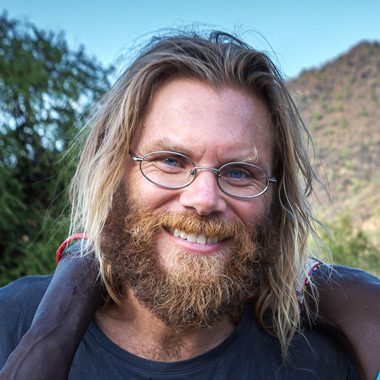The Batwa tribe is said to have been the first inhabitants of the mountain forests of the Rift Valley and one of the world's first Homo sapiens, along with the Kalahari San people. The forest was their home, and they were its guardians and main benefactors. Life in the forests provided them with forestry skills, sustenance and herbal medicines. Furthermore, these forests contained their sacred places of worship.
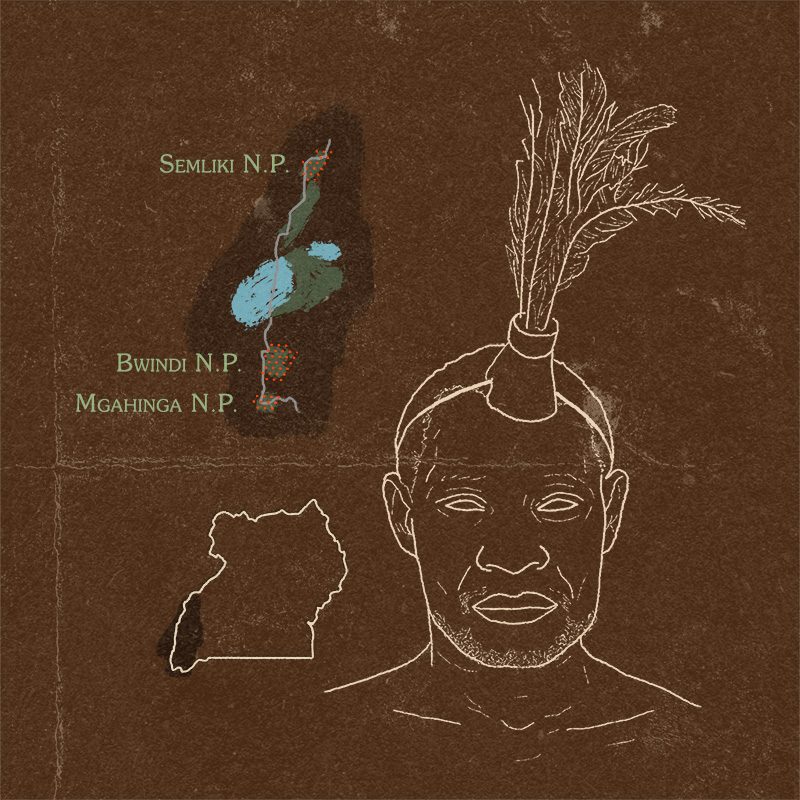
Location of the Batwa tribe in the territory of Uganda.
Population and ecosystem
The Batwa or Twa tribe is made up of about 20,000 people spread across the jungle hills between Uganda, Rwanda, Burundi and the Democratic Republic of the Congo. The demographic pressure of the different Bantu peoples, who live in this fertile region of Central Africa, has marginalized the Batwa tribe to remote areas with few resources and has forced them to change their lives almost completely.
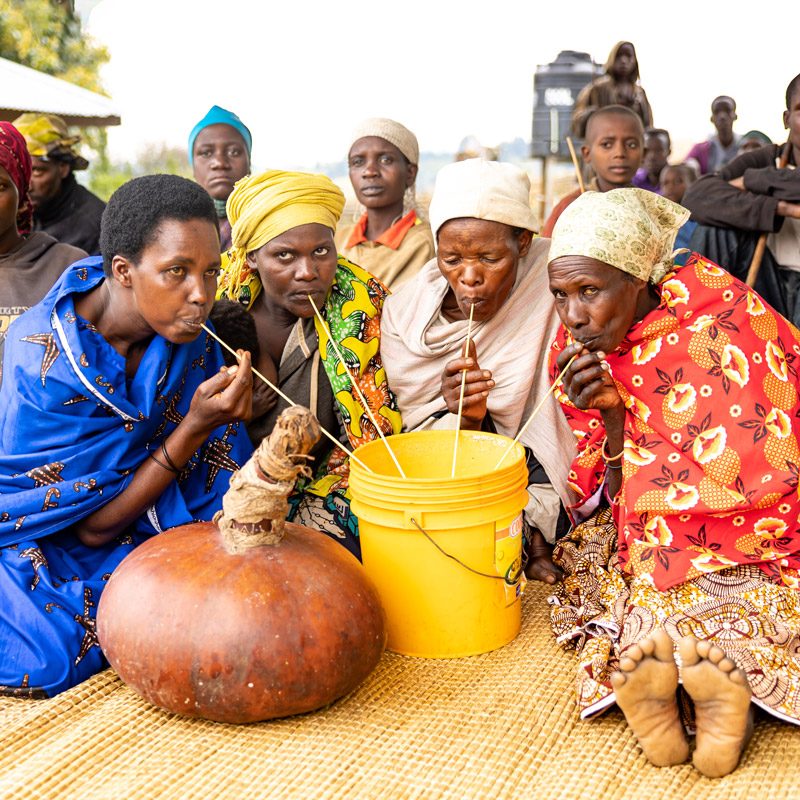
Traditional Batwa drink made with fermented bananas.
Economy of the Batwa tribe
Until the 1960s, most Batwas lived by gathering and hunting. Today, the majority of Batwa do low-paid agricultural work, making clay containers to barter for food or sell, and a few live by working as trail guides to observe the famous lowland gorillas.
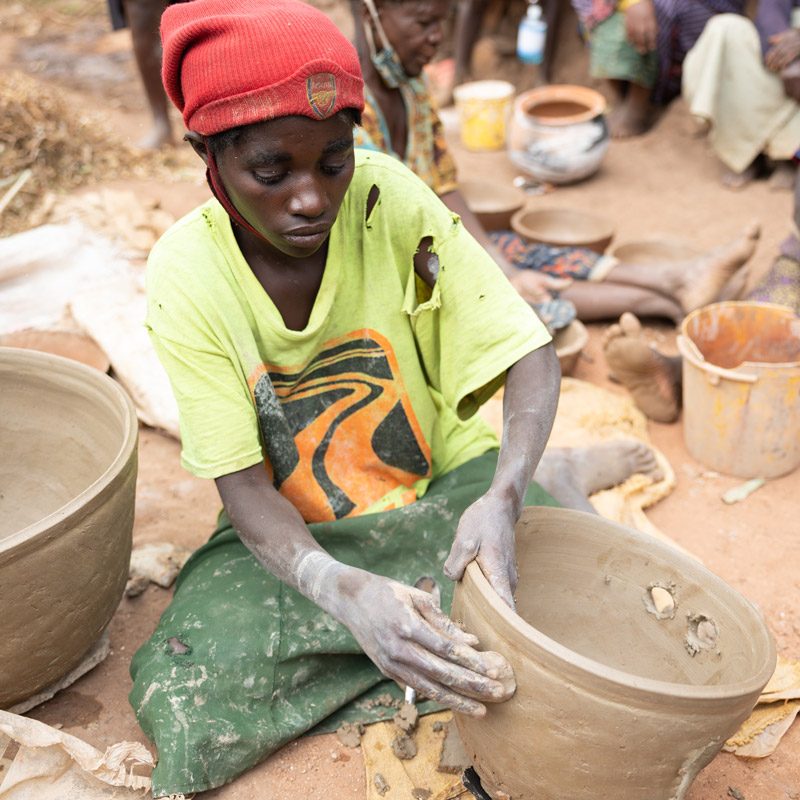
Meeting with a young Batwa tribe ceramist during a trip to Uganda.
Aesthetic
Some years ago, the Batwa covered their bodies with antelope and jungle buffalo skins. They did not know the fabric and were nomads. Today, most dress in second-hand clothing donated by NGOs or bartered for manual labor.
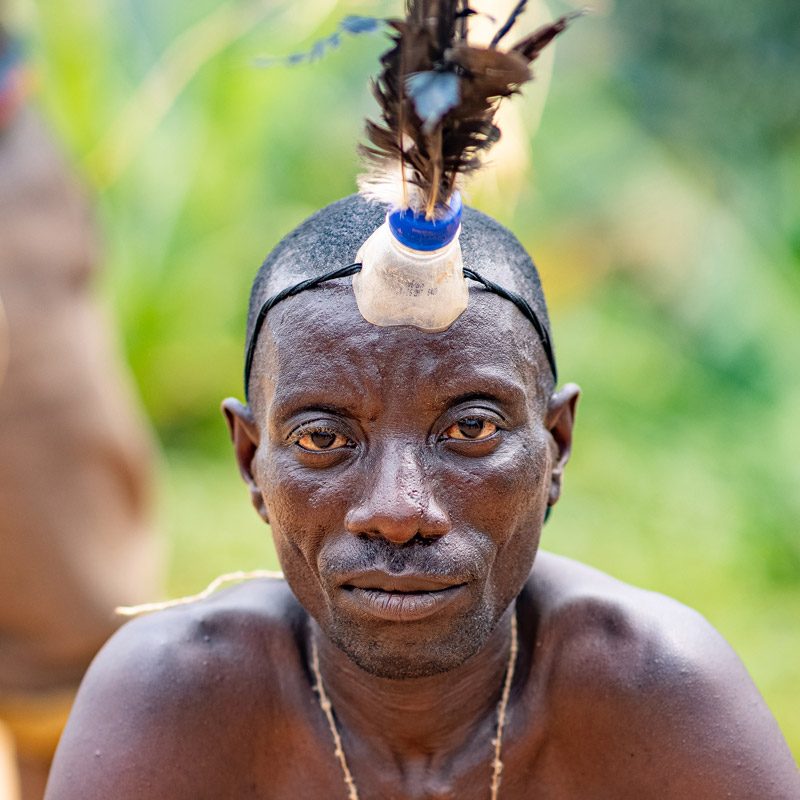
Twa dancer with hornbill plume.
Do you want to meet the Batwa tribe of Uganda?
Discover the world of the Batwa tribe on our trip to Uganda from 10 to 22 September 2024. Click here to discover all the details of the trip.
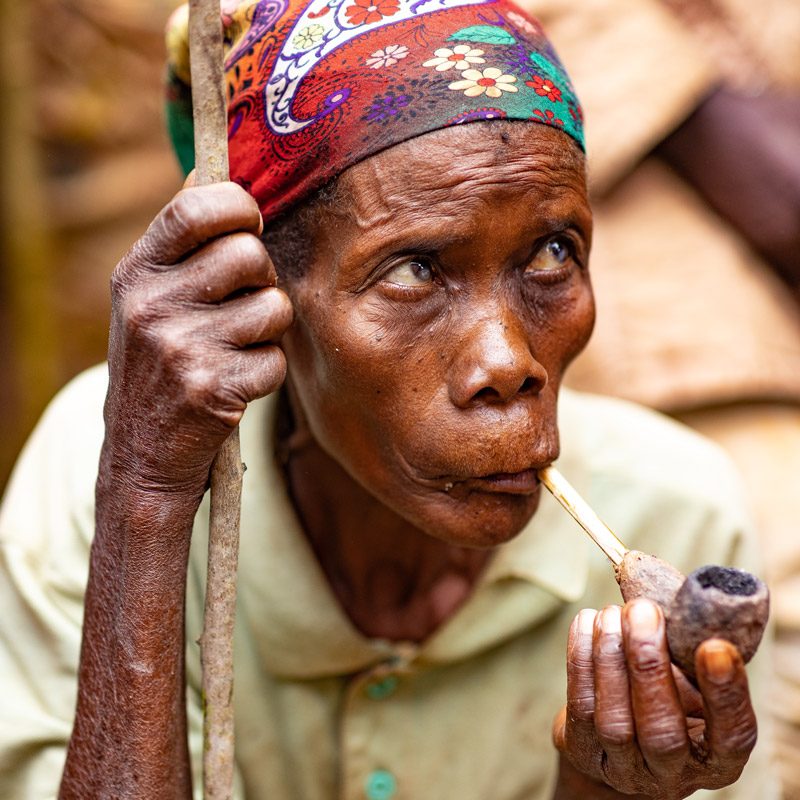
Old woman from the Batwa tribe with traditional pipe.
Belief system
As for beliefs, the most traditional Batwa continue to believe in the world of spirits and the power of Mother Nature. The families closest to the dominant society have adopted some form of Christianity. During ceremonies related to death and baptisms they usually decorate their faces and bodies with natural dyes. They also adorn their heads with parrot or turaco feathers.
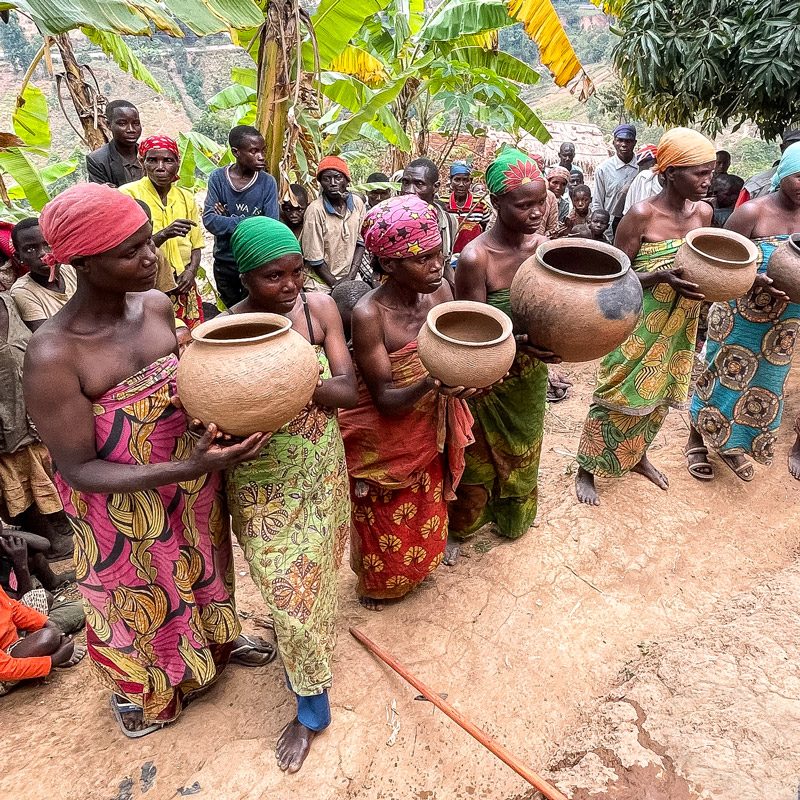
Batwa tribe community shows their art during a trip to Uganda.
Art and architecture
The music and rhythms of the Batwa tribe are renowned in the Central African region. Batwa music groups are hired to entertain ceremonies of other neighboring tribes. The pottery is surely, as well as the wooden pipes, the most recognizable artistic work of the Batwa. Their towns are simple. They use clay and branches to build the walls and cover the roofs with leaves.
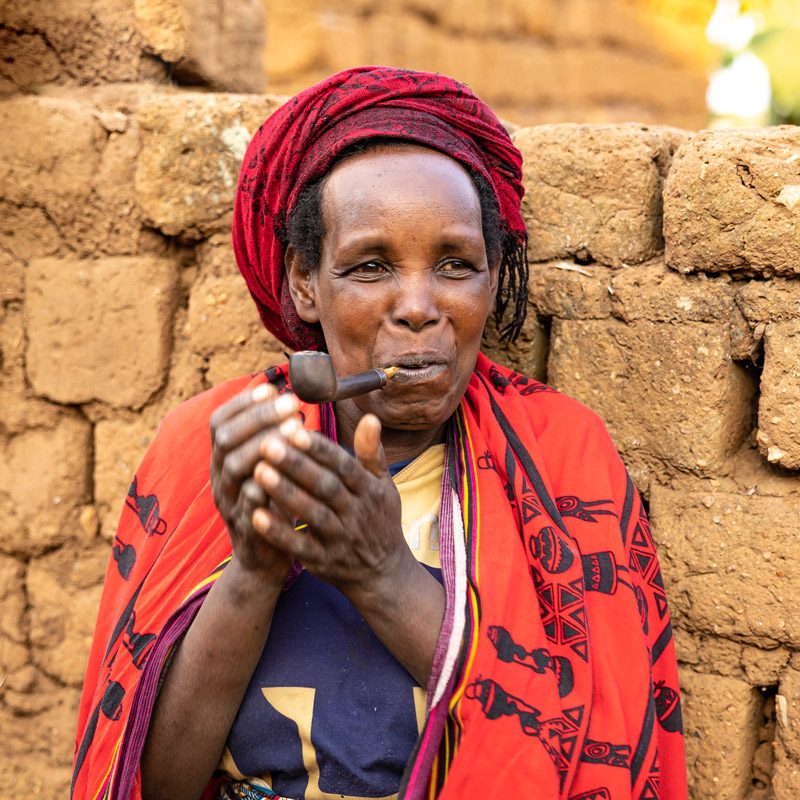
Batwa traditional healer smoking local tobacco during trip to Uganda.
Challenges of the Batwa tribe
After being expelled from their ancestral territory (several parks in Uganda, Rwanda and Burundi), the Batwa tribe has an uncertain future. Many Batwa live poorly near the forests where their grandparents were born, without being able to access the food and natural medicines that the forest provided. This situation of helplessness has increased cases of alcoholism among the oldest tribe in Central Africa.
A type of respectful tourism, which even allows them to be compensated by the government with some area of forest to collect and hunt, is one of the few ways that the Batwa tribe has to survive this century.
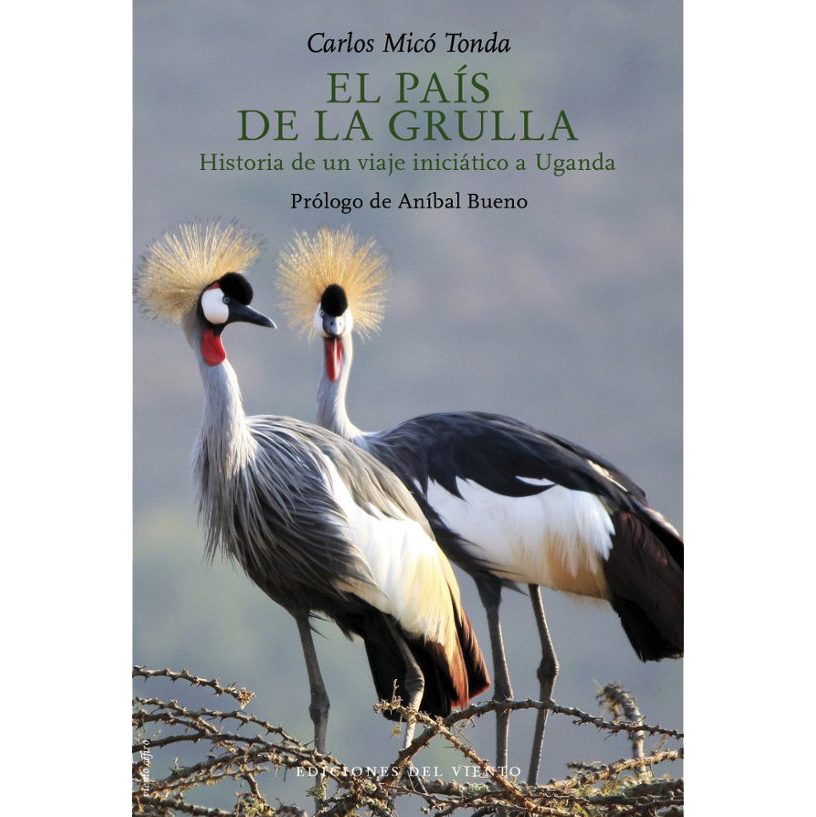
Discover more about Uganda with the book 'El País de la Grulla
Uganda has long proudly worn the title of "Pearl of Africa". It was in these lands, blessed by nature, that the exploits of some of the most notable nineteenth-century explorers, such as Captain Richard Burton, John Hanning Speke and Henry Morton Stanley, took place. Thanks to the fortune they sought - and sometimes found - in that territory, their names became legends.
But, beyond the beauty of the Crane Country and the exploits that took place there, Uganda crept into the heart of Carlos Micó. Firstly, it was his debut in Africa — the culmination of a dream. Second, it saved his life in his darkest hour. Finally, it changed him forever. “I am who I am as a result of that initiatory trip.” Click here if you are interested in purchasing 'El País de la Grulla' by Carlos Micó.
You can learn more about the Batwa tribe of Uganda at www.101lasttribes.com
© Photo by Xavi de las Heras taken during a trip to Uganda.
